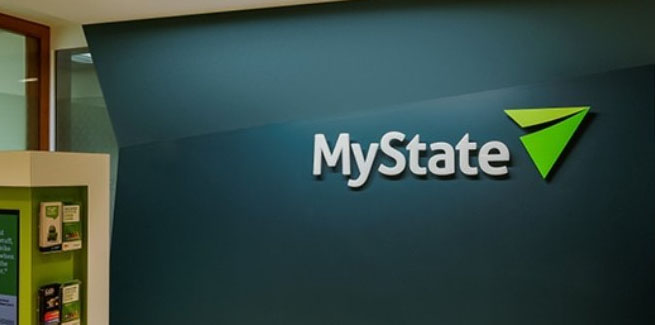MyState has released its results for the six months to 31 December, revealing its statutory net profit after tax had dipped year-on-year by 2.4 per cent, to a total of $16.6 million.
The bank’s bottom line had been hit by higher operating costs, from bumped up investments in distribution staff, marketing and branding as it continued on its multi-year growth strategy.
So far, MyState has been successful in gaining more market share. During the half, its overall loan book grew by 10.6 per cent, to $6.1 billion, driven by an 11.4 per cent spurt in home loans, up to a total of $6 billion.
Home loans had risen at three times system growth over the period.
Applications had soared by 117 per cent to $2.5 billion worth of home loans, while there was $1.4 billion in settlements, 116 per cent more year-on-year.
This was despite competition being “strong” and regulatory requirements rising, according to MyState chief executive and managing director Brett Morgan.
Competitive pressures had shaved MyState’s net interest margin (NIM) by 17 basis points year-on-year, ending December on 1.7 per cent.
Fixed-rate lending had also climbed, up from 24 per cent of MyState’s home loans in the prior corresponding period, to 34 per cent in the last half.
“We’re very confident about our ability to continue to grow the book and grow them as decent returns,” Mr Morgan told journalists on Friday (18 February).
“But competition is strong, you know, across both banks and non-banks and I guess, in potentially rising rate environments, banks all of a sudden have an advantage again, with customer deposit funding.”
He also noted the bank is well positioned to meet new capital requirements coming in from next year.
“There’s always more regulation. So it’s more a matter of how we go and our response is very much simplifying our business and focusing on the businesses we know well and can continue to grow and therefore deal with the regulatory environment as it changes and evolves,” Mr Morgan said.
As outlined in MyState’s investor presentation on Friday (18 February), the bank has strategies to respond to each economic and industry dynamic.
Looking at intense competition in the banking sector, MyState has turned to brokers, deciding to target slimmed loan turnarounds.
As regulatory obligations increase, it has countered with a simplified business model, as well as automation and digitisation to reduce error rates.
The recent surge in home loans had been primarily driven by the broker channel, with Mr Morgan putting it down to rapid loan assessment times.
Brokers comprised around 85 per cent of new home loans during the half, and around 80 per cent of the book.
“For us, it’s been turnaround times. For over 12 months, we’ve consistently been at two days turnaround time to indicative approval,” Mr Morgan said.
“And the broker community, from my talking to brokers, just want that certainty so that they can service their customers as well.”
However, the most recent Broker Pulse survey found the average time to initial credit decision in January for MyState was six business days.
MyState has also ramped up its advertising, with a 90 per cent surge in marketing costs year-on-year, to $5.8 million during the half.
In Melbourne, where MyState’s marketing campaign is currently mostly focused, Mr Morgan reported there had been record numbers of customers joining the bank.
Mr Morgan has led MyState for four weeks, after being CEO of banking and wholesale at BNK Banking Corporation.
[Related: Calls for brokers to assess lenders in survey]
 ;
;
